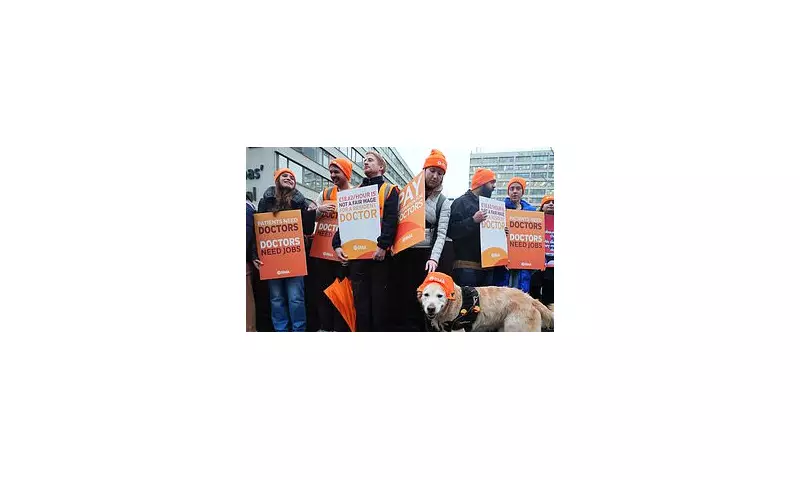
Family doctors across England are threatening to join the wave of NHS industrial action in a fierce dispute with the Government over a controversial new online booking system. A recent poll indicates that significant numbers of GPs are prepared to close their practices for a day or redirect patients to already overwhelmed Accident & Emergency departments.
Widespread Discontent and Threat of Action
A survey of 431 GPs and practice managers, conducted by trade publications Pulse and Management in Practice, uncovered deep-seated frustration. More than a third (over 33%) stated they would be willing to temporarily close their surgery doors as part of the protest. Furthermore, the poll revealed that 48% would consider redirecting patients to A&E, and 28% would stop online consultations entirely.
The core of the conflict is a Government-mandated system, introduced nationwide on October 1, which requires surgeries to keep online forms open for patient requests from 8am to 6:30pm. Ministers intended this policy to eliminate the stressful '8am scramble' for appointments, where patients frantically call their practice the moment lines open.
A System Under Fire
While many practices already utilise online systems, the Department of Health argues there is a lack of consistency, with some surgeries disabling the function during busy periods. However, the British Medical Association (BMA), the doctors' union, contends that the new contract is fundamentally flawed.
BMA officials assert that no safeguards were implemented, and no additional staff were provided to manage what they describe as a 'barrage of online requests'. The survey itself estimated that GPs are spending the equivalent of 200,000 appointments each week just to manage the new digital demands.
One GP told Pulse, 'I feel extremely strongly that this new contract is detrimental to patient safety and clinician workload. I would be prepared to participate in industrial action.' Another lamented, 'After 20 years as a GP loving her job I am seriously considering my future in NHS general practice.'
Broader Context and Government Response
This dispute occurs against a backdrop of a severe crisis in general practice. The number of fully-qualified GPs has dwindled over the past decade, with many retiring early or leaving for the private sector due to soaring demand and immense paperwork. This GP shortage is exacerbated by a growing population.
This is not the first time GPs have taken industrial action. They staged walkouts in August of last year over funding and workload, and also in 2012 concerning pension changes. The current threat of action adds another layer of pressure to the NHS, which is already contending with a five-day walkout by resident doctors over pay.
In response to the poll, the Department of Health and Social Care dismissed the findings, stating, 'This data only represents a very small minority of GP practices and is not reflective of the national picture.' They defended the online system as a service patients 'want and rightly expect in the 21st century' and highlighted a £1.1 billion funding boost and plans to recruit 2,500 more GPs.
Despite the government's assurances, the survey responses paint a picture of a system at breaking point. One doctor called the new process a 'joke', while others reported patients submitting 'trivial requests, sometimes twice a day', including from abroad. With winter approaching and the NHS under immense strain, the prospect of GP-led industrial action poses a significant new threat to patient care and service stability.






